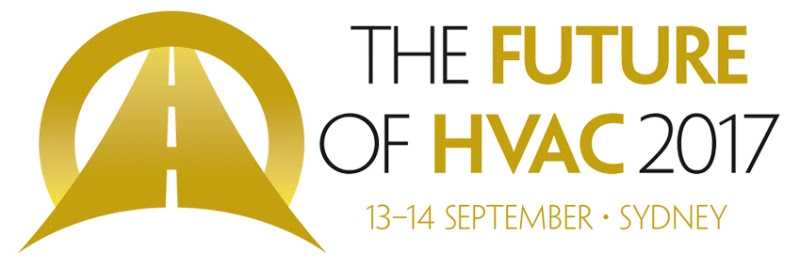
Explore the advances, ideas, and innovations driving the future of HVAC.
Future of HVAC 2017 | 13 -14 September 2017, Sydney
Are you interested in finding out about the new technologies and materials driving the HVAC industry? Do you want to find out about what new innovative ideas the industry is drumming up? Interested in exploring the advances of Building Information Modeling (BIM) and how it can benefit your HVAC systems?
Now in its fifth year, the Future of HVAC Conference is the event for everyone wanting to see what opportunities are available in the HVAC industry’s future. It is the event to contemplate the challenges, technology, and bright new ideas that await. 13-14 November at the Doltone House Darling Island Wharf.
Industry leaders will explore the advances, ideas, and innovations that are driving the HVAC industry’s future. The discussion will encompass not only new HVAC technologies and materials, but advances in future design processes, HVAC and smart grids, net-zero buildings, big data, and several other topics.
There are two days of discussions focused on the advances coming up in the HVAC industry, the advantages and how you can apply them.
Operational Intelligence, smart workplace expert David Murray will be presenting at the conference, speaking about Building Information Modeling (BIM), what is it and the opportunities that are available now because of this technological advance.
The problem that cities, buildings and workplaces currently face is that integrated buildings have moved beyond simple SCADA level integration, where extra-low voltage systems (ELVS) such as building automation, energy management, security and lighting are integrated on a common user interface.
Smart Buildings have the benefit of integrating building system data into a real-time 3D-rendered virtual model that allow the user to “walk” through their virtual building, clicking on assets and equipment as they go. This 3D model is built from the BIM file and is a single storage point for technical data, service information, commissioning records, and any relevant information associated with that asset. This data and document management benefits the construction teams and is tied to that asset for the life of the building, also benefiting the facility managers through the buildings lifecycle.
If you are struggling with multiple processes, systems and technologies and want to remove the headaches that comes along with this, come along and speak to Dave at the Future of HVAC conference, or contact us now.
OUR NEWSLETTER
STAY IN TOUCH WITH THE LASTEST NEWS AND UPCOMING EVENTS.
CONTACT US
MENU
FOLLOW
Our Services
- #1604 (no title)
- 130 Lonsdale Street
- 32 Smith Street, Parramatta
- About
- Contact Us
- Digital Advisory
- dummy
- Home
- ICN Digital Transformation NEW
- Integrated Building Systems
- M_Park – Stockland
- Master System Integration
- Network System Integration
- News
- News (Existing 8.07)
- Privacy Policy
- Projects
- Services
- Thank you
- The OI Value
- Asset Management
- Information Management
- Integrated Building Systems (existing)
- Process Mapping
Company
- #1604 (no title)
- 130 Lonsdale Street
- 32 Smith Street, Parramatta
- About
- About Us (Existing 6.07.22)
- Contact (Existing 6.07.22)
- Contact Us
- Digital Advisory
- dummy
- Home
- ICN Digital Transformation NEW
- Integrated Building Systems
- M_Park – Stockland
- Master System Integration
- Network System Integration
- News
- News (Existing 6.07.22)
- News (Existing 8.07)
- Privacy Policy
- Projects
- Projects (Existing 6.07.22)
- Services
- Thank you
- The OI Value
Contact
Head Office:
22 McIntyre Street,
Burwood VIC 3125
Australia



